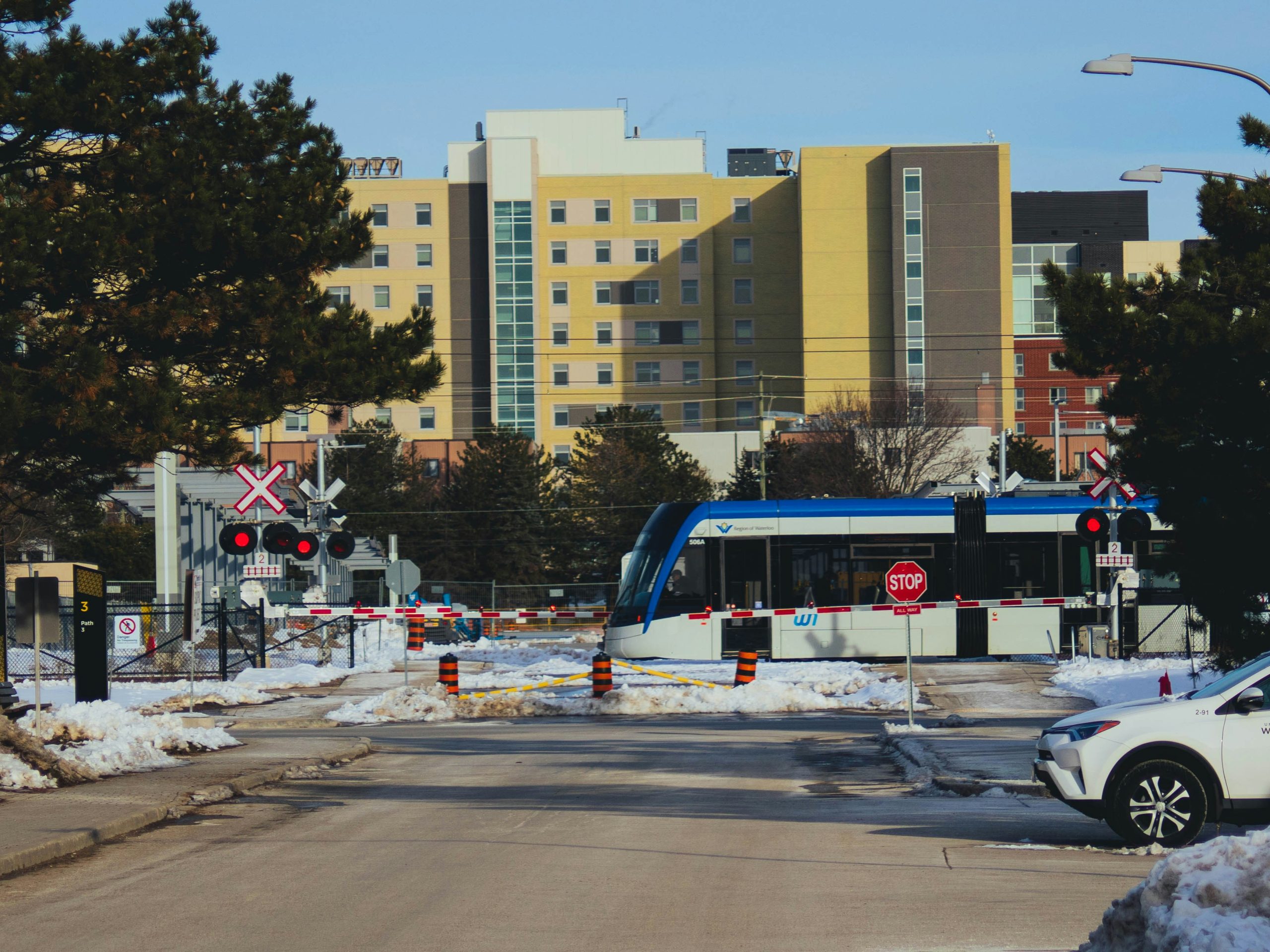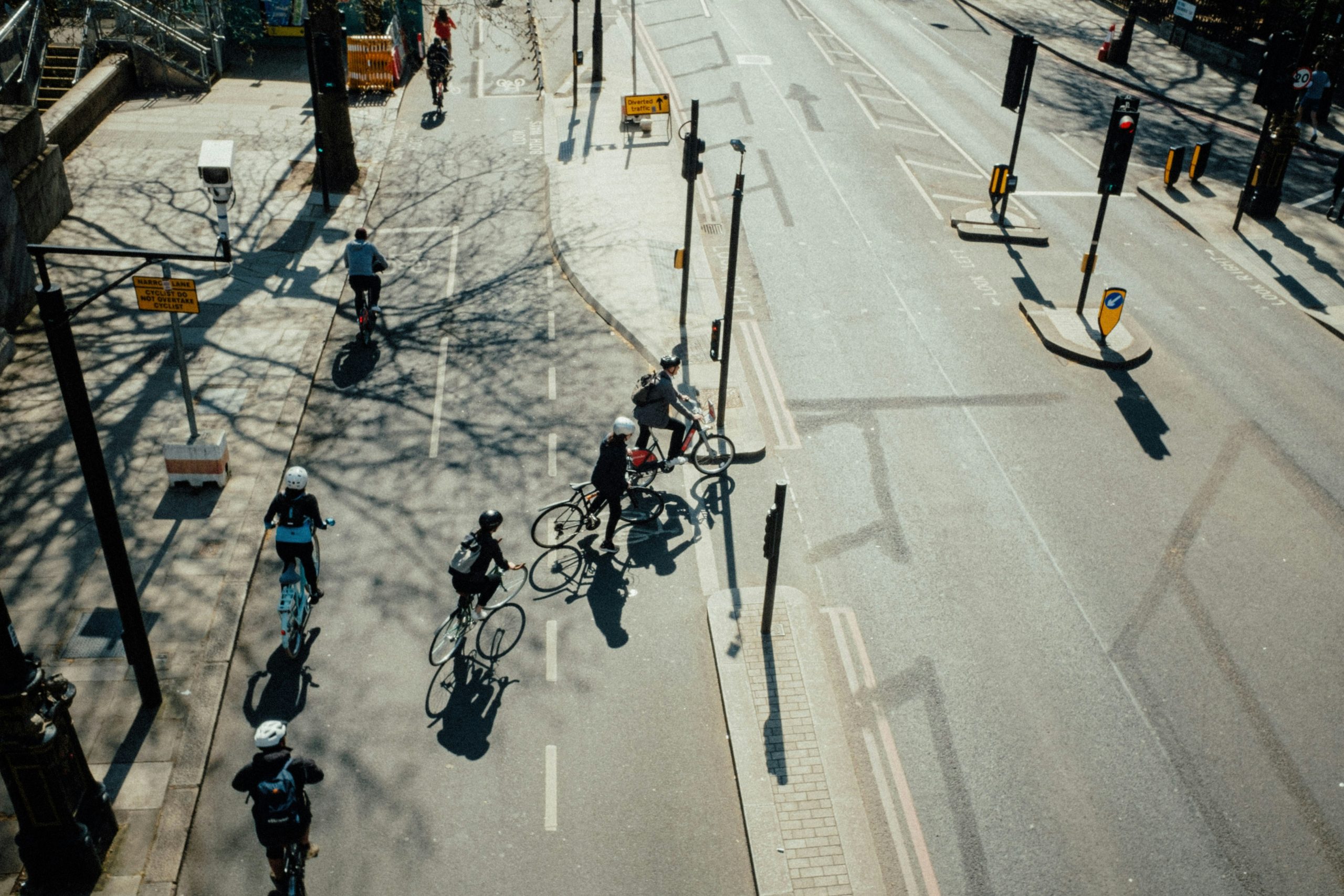Featured Guest
You’ll find this guest among our growing roll of Urban Champions.
5 Key Takeaways
A roundup of the most compelling ideas, themes and quotes from this candid conversation
1. Emergency management has to be considered in the context of other shocks and stresses happening in a community.
After Hurricane Andrew in 1992, the state of Florida built a sophisticated, self-funding emergency management system. It adopted a holistic understanding of shocks and stresses—including regional access to affordable housing, transportation, income disparities, and other equity issues—to ensure that responses were locally informed.
As a result, “when the [COVID] pandemic hit, it wasn’t the broader health department or emergency management department who responded—it was the Resilience Office that had conceptually thought about this and had already partnered with the 34 municipalities in our county, and with our adjacent counties, to respond,” explains James Murley, Chief Resilience Officer of Miami-Dade County.
2. The rise of multi-crisis events is challenging traditional models of probability.
“There are so many strains in the systems in our world—because we haven’t kept up with infrastructure investment, because of climate change—that are resulting in a reality where we’ll see more and more of these multi hazard or multi-crisis events happen concurrently,” noted Daniel Aldrich, Director of the Security and Resilience Studies Program at Northeastern University in Boston.
As a result, Aldrich argued that the probability side of the risk management equation is becoming less viable. “The other part of the equation is vulnerability, so we need to understand vulnerabilities much more richly, and put our resources there so now actually risk management is vulnerability reduction,” said Aldrich.
3. The concept of vulnerability must be continually interrogated.
As a Professor at the University of Calgary’s Faculty of Social Work, Julie Drolet has extensively research community resilience in response to disaster, including British Columbia’s wildfires.
“Intersectionality includes a variety of identity factors—such as age, gender, ability, culture, ethics, background, and immigration status—which contribute to how people experience different events,” explained Drolet. “Some of those factors can be positive and assets, and then other aspects might present as barriers. We need to move away from deficit-focused approaches to really think about the strengths, assets, and abilities that present in different combinations.”
“We’re always really careful in our research not to blanket statement a group as ‘vulnerable’,” agreed Aldrich. “In post-tsunami Japan, many elderly people whom I assumed were vulnerable were the opposite. They’d already been through war and hardships without water or electricity, and they were ready to help bounce back and teach the younger generations how to endure.”
4. Reciprocal, trust-based relationships are key to community resilience.
In the United States, 90% of the variation in COVID-19 outcomes was predicated on differencing local rates of social capital and trust.
Jeb Brugmann, Founding Principal of the Resilient Cities Catalyst, has also seen this reality while working with a Resilient Neighbourhoods program in one of the most climate-exposed areas of Northeast Houston.
“Every time there’s any kind of a tropical storm it gets flooded,” said Brugmann. “It’s a Black neighbourhood that has been historically ignored, and so there wasn’t a good working relationship with the local community and the municipality. So I think a lot of the getting the appropriate resources to has to do first with actually getting effective relationships and dynamics happening—the kind of social work of urbanism.”
5. It’s time to move from cost-benefit to social benefit analysis.
In his closing remarks, Aldrich encouraged a move away from physical infrastructure investment, such as building seawalls or moving houses, towards greater support of social infrastructure.
“Part of that is building relationships and moving outside of our silos to recognize that everyone has a role to play in reducing these risks—not just disaster and emergency management professionals,” said Aldrich.
Full Panel
Transcript
Note to readers: This video session was transcribed using auto-transcribing software. Questions or concerns with the transcription can be directed to events@canurb.org with “transcription” in the subject line.
Full Audience
Chatroom Transcript
Note to reader: Chat comments have been edited for ease of readability. The text has not been edited for spelling or grammar. For questions or concerns, please contact events@canurb.org with “Chat Comments” in the subject lin
From Canadian Urban Institute: You can find transcripts and recordings of today’s and all our webinars at https://canurb.org/citytalk
11:58:31 From Kate, Canadian Urban Institute To Everyone:
Welcome everyone! We invite you to say hello in the chat before we get started. Where are you watching from? Please change your chat settings to “everyone” so that everyone can read your comments
11:59:53 From Jason Yardley To Everyone:
Good Morning – My name is Jason, and I am a Masters of Disaster and Emergency Management student coming to you from Cochrane, AB.
12:00:05 From Jeb Brugmann To Everyone:
Hi Everyone – Jeb here from Resilient Cities Catalyst (based in Toronto). I look forward to the exchange.
12:00:47 From Claire Gram To Everyone:
Good morning. Claire Gram here from Vancouver.
12:01:00 From Julie Drolet To All Panelists:
Hello! Julie Drolet from Treaty 6 territory and the City of Edmonton.
12:01:19 From Daniel Aldrich (he/him) To Everyone:
Daniel Aldrich of Northeastern University in Boston, Massachusetts – excited to be here
12:01:28 From DONOVAN MORGAN To Everyone:
Good Afternoon, my name is Donovan Morgan and I’m joining from Jamaica.
12:02:09 From Kate, Canadian Urban Institute To Everyone:
HOUSEKEEPING: We are recording today’s session and will share it online at canurb.org/citytalk-canada/ We hope this session is as interactive as possible, so please feel free to share comments, references, links or questions in the chat Please change your chat settings to “everyone” so that everyone can read your comments.
12:02:13 From Astrid Arumae To Everyone:
Good morning, Astrid Arumae, Tamarack Institute – from Tiohtià:ke/Montréal
12:02:20 From Kirsten Frankish To Everyone:
Hello all! Kirsten Frankish from Woodstock, ON. Super pleased to be joining today!
12:02:21 From Michelle Groulx To Everyone:
Hi everyone! Michelle Groulx from Ottawa Coalition of BIAs (OCOBIA) Looking forward to this informative session!
12:03:31 From Shawn Parry To Everyone:
Evening, Shawn joining from Oxford, UK.
12:03:32 From Robin McPherson To Everyone:
Hi from St. Catharines. traditional territory of the Haudenosaunee and Anishinaabe
12:04:06 From Tannis Vine To Everyone:
Good afternoon! Tannis Vine from the Heart of Orléans Business Improvement Area (Ottawa)
12:04:37 From Kate, Canadian Urban Institute To Everyone:
On December 7, CUI is convening people across Canada for an online summit exploring how COVID shaped our cities and revealed urgent priorities. RSVP to “COVID 1000 and Beyond: Building Better Cities for a Robust Recovery” here: https://events.zoom.us/e/view/PoOLQnA9RXizRRFqGDtF6Q
12:06:11 From Kate, Canadian Urban Institute To Everyone:
Daniel P. Aldrich is a full professor of political science and Director of the Security and Resilience Studies Program at Northeastern University. He researches post-disaster recovery, countering violent extremism, the siting of controversial facilities and the interaction between civil society and the state.
12:06:16 From Kate, Canadian Urban Institute To Everyone:
Aldrich has held posts as a Fulbright Research Fellow and an Abe Fellow at Tokyo University and as an AAAS Science and Technology Fellow with USAID. Aldrich is a contributor to the New York Times, CNN, The Conversation, and the Asahi Shinbun, among other media.
12:10:58 From Kate, Canadian Urban Institute To Everyone:
James F. Murley is the Chief Resiliency Officer for Miami Dade County. He is responsible for securing the county’s fate over the next century as sea levels are expected to rise by at least one foot, and he has also been tasked with ensuring that the county is prepared for hurricanes, population spikes, and other sudden stresses.
12:11:05 From Kate, Canadian Urban Institute To Everyone:
Murley was also recently appointed to the City of Miami Sea Level Rise Committee and has spent over 10 years with the Florida Atlantic University, where he oversaw research on urban and environmental issues. He is a founding Board member of the American Society for Adaptation Professionals and a Fellow at the National Academy of Public Administration.
12:15:08 From Kate, Canadian Urban Institute To Everyone:
Do you have specific questions for the panellists? Post them in the chat, and we’ll try to answer as many as possible!
12:15:41 From Blake Poland To Everyone:
Great topic and panel. Thank you for organizing this. FYI, Our work explores these issues (community resilience) but from a critical relational perspective that seeks to avoid some of the problematic glorification of mutual aid that is endemic in this field, in favour of a relational accountability approach that seeks to increase the responsiveness of formal institutions to marginalized communities.
Poland, B., Gloger, A., Morgan, G. T., Lach, N., Jackson, S. F., Urban, R., & Rolston, I. (2021). A Connected Community Approach: Citizens and Formal Institutions Working Together to Build Community-Centred Resilience. International Journal of Environmental Research and Public Health, 18(19). doi:10.3390/ijerph181910175
Morgan, G. T., Poland, B., Jackson, S. F., Gloger, A., Luca, S., Lach, N., & Rolston, I. A. (2021). A connected community response to COVID-19 in Toronto. Global Health Promotion, 17579759211038258. doi:10.1177/17579759211038258
12:16:55 From Kate, Canadian Urban Institute To Everyone:
Dr. Julie Drolet is Professor in the Faculty of Social Work at the University of Calgary and Project Director of the Transforming the Field Education Landscape partnership. Her research in the field of international social work focuses on disaster social work, immigrant settlement and integration, social protection, social development, and field education.
12:17:02 From Kate, Canadian Urban Institute To Everyone:
She has been recognized with numerous awards for her commitment to excellence in research, including a Canadian Foundation for Innovation Leaders Opportunity Fund Award, a Killam Emerging Research Leader Award, and induction into the Royal Society of Canada’s College of New Scholars, Artists, and Scientists in 2019. She is a registered social worker with the Alberta College of Social Workers (ACSW).
12:19:29 From Blake Poland To Everyone:
Could the organizers please change the settings to allow participants to copy from the chat? I wanted to have the full speaker bios posted here in one place alongside my notes from the conversation.
12:20:57 From Kate, Canadian Urban Institute To Everyone:
Jeb Bruggman has 30+ years’ professional experience working with local governments and with the corporate sector in 28 countries. In 1989-1990, he founded ICLEI-Local Governments for Sustainability. He served as ICLEI Secretary General from 1991-2000, establishing the first international programs on urban greenhouse gas management and the worldwide ‘Local Agenda 21” sustainability planning initiative.
12:21:04 From Kate, Canadian Urban Institute To Everyone:
Bruggman holds a Master’s degree from Harvard University’s Kennedy School of Government and a BA in Economics summa cum laude from the University of Massachusetts. His awards include the Millennium Award for Best Sustainability Initiative (2000) of the European Environmental Agency/Princes’ Foundation, and the 2007 McKinsey Award for best article of the year from Harvard Business Review. He is a Senior Associate with the University of Cambridge Institute for Sustainability Leadership, and author of Welcome to the Urban Revolution: How Cities Are Changing the World.
12:22:13 From Kate, Canadian Urban Institute To Everyone:
Hi Blake, sorry about that. The full chat will be posted on canurb.org/citytalk-canada/ in the coming days
12:22:31 From Blake Poland To Everyone:
Thank you Kate. Much appreciated.
12:26:09 From Blake Poland To Everyone:
But is there a fundamental flaw in risk management insofar as its prime directive is to manage the consequences of modernity without addressing the systemic drivers of climate catastrophe and ecological destruction?
12:27:39 From Blake Poland To Everyone:
And is the term ‘vulnerability’ problematic. (Racialized) communities and neighbourhood/community systems are made marginalized in systems designed to siphon and concentrate wealth. Vulnerability suggests the problem lies with those so labelled, as if vulnerability is a feature of individuals/groups.
12:28:08 From robert plitt To Everyone:
how might the negative impacts of Covid played out differently if the types of resilience infrastructure you are speaking about had been in place?
12:29:00 From Blake Poland To Everyone:
Yes to the point being made about what Janice Stein called “The Cult of Efficiency”…
12:29:53 From Caroline Taylor To Everyone:
When the pandemic started Windsor Ontario (which is an auto centric city) declared a city emergency and the mayor stopped our city buses from running. I thought this was a catastrophe in itself. The most vulnerable had no way to get their jobs.
12:31:48 From Blake Poland To Everyone:
We need community-CENTRED resilience that doesn’t simply offload responsibility from the state to marginalized communities, but instead holds systems and institutions accountable to being responsive to community-led resilience building efforts, so that what Caroline described as happening in Windsor would become unthinkable.
12:33:37 From Mary W Rowe, she/her, CUI/IUC To Blake Poland and All Panelists:
YES!
12:34:53 From Kate, Canadian Urban Institute To Everyone:
Heat Wave: A Social Autopsy of Disaster in Chicago https://press.uchicago.edu/ucp/books/book/chicago/H/bo20809880.html
12:36:31 From Blake Poland To Everyone:
In case it’s of interest to others, some of our work on the promises and challenges of setting up “resilience hubs” in Canada, working with faith communities and others: Murray, S., & Poland, B. (2020). Neighbourhood climate resilience: lessons from the Lighthouse Project. Canadian Journal of Public Health. doi:10.17269/s41997-020-00432-0
12:36:56 From Jason Yardley To Everyone:
Building resilience is a the forefront of policy and policy development, for instance, “building back better,” but is there perhaps a misunderstanding of what this means? I often think it is seen as finite as opposed to Dr. Aldrich’s concept of “bouncing forward,” which suggests we should look beyond traditional cost-benefit analyses and standard operational cycles to envision long-term, transformational change. How do horizontal links, who understand what is required to make the change, advocate and set their agendas in developing concrete policies that create the conditions to make spaces to build resilience?
12:38:00 From robert plitt To Everyone:
I guess what I am getting at is what have we learned from this ‘disaster’ and where should we be investing to be prepared for the next.
12:39:18 From Mary W Rowe, she/her, CUI/IUC To Blake Poland and All Panelists:
can you send me your links mwrowe@canurb.org thanks
12:40:17 From robert plitt To Everyone:
Interesting – where does one invest to build trust?
12:40:22 From Daniel Aldrich (he/him) To Everyone:
https://www.researchgate.net/publication/360083666_Social_capital’s_impact_on_COVID-19_outcomes_at_local_levels
12:40:41 From Daniel Aldrich (he/him) To Everyone:
https://www.researchgate.net/publication/358130065_Opposing_views_associations_of_political_polarization_political_party_affiliation_and_social_trust_with_COVID-19_vaccination_intent_and_receipt
12:41:03 From Daniel Aldrich (he/him) To Everyone:
https://www.researchgate.net/publication/353358430_Bowling_alone_or_distancing_together_The_role_of_social_capital_in_excess_death_rates_from_COVID19?_sg%5B0%5D=aajFfP873zGVVAKdklScdl4wluUJ8PxlQfE8Q2WPBLFIWH2NkM0pSHQS-t_cdPyTmHVk3sdHypSLopNd5FKLHRwDTlvV2H2fe-gUn8ot.eCYBlY499DvtkZhwaRvY-e2BOrYVQfBsQ18wpPFbtPKh3iR4hr4E9PxciESN6MtWBfMpbFPYCeZA-u5f-TVLhA
12:43:17 From Daniel Aldrich (he/him) To Everyone:
Can we move beyond social vulnerability indicators which don’t capture social ties? We’ve tried to do so with a new indicator, SoCI (Social Capital Index): https://www.researchgate.net/publication/337813421_Capturing_Bonding_Bridging_and_Linking_Social_Capital_through_Publicly_Available_Data
12:46:19 From Carlos Delgado To Everyone:
What metrics/indicator tracking tool + performance measurement + impact reporting software these organizations uses to 1) monitor progress over time and 2) report on these to stakeholders
12:46:28 From Greg Spencer To Everyone:
Thanks for posting your articles Daniel. They are of great interest to the CUI. In particular, we are working on a project assessing the value of civic infrastructure in main street environments and how it relates to community building.
12:47:06 From Blake Poland To Everyone:
Would love to hear more about that work Greg.
12:48:14 From Greg Spencer To Everyone:
We can certainly connect on this. We are also working with Karen Chapple and are helping with a capstone course on this topic through the School of Cities at UofT.
12:48:39 From Blake Poland To Everyone:
Ok super. Some of our work has been funded by Karen & SoC.
12:49:02 From Judy Lincoln To Everyone:
Could you post the four “E”s again please?
12:49:32 From Kate, Canadian Urban Institute To Everyone:
Economy. Equity. Environment. Engagement.
12:56:59 From Miranda Jimmy To Everyone:
*with the exception of the arctic
12:59:38 From Kate, Canadian Urban Institute To Everyone:
Join us for our next CityTalk: “How Can Cities Respond to Climate Change?” on Thursday, December 1. RSVP at https://us06web.zoom.us/webinar/register/7916691292009/WN__Q3nsWZ8QBuiPbF2YN1uiw
12:59:46 From Blake Poland To Everyone:
This was a GREAT panel and discussion. Thank you!
12:59:56 From Kate, Canadian Urban Institute To Everyone:
On December 7, CUI is convening people across Canada for an online summit exploring how COVID shaped our cities and revealed urgent priorities. RSVP to “COVID 1000 and Beyond: Building Better Cities for a Robust Recovery” here: https://events.zoom.us/e/view/PoOLQnA9RXizRRFqGDtF6Q
13:00:10 From Jeb Brugmann To Everyone:
Kate – can you save all these comments for us?
13:00:17 From Jason Yardley To Everyone:
Very informative, thank you
13:00:23 From Claire Gram To Everyone:
More would be good!! excellent discussion.
13:00:24 From Kate, Canadian Urban Institute To Everyone:
Yep! The chat will be posted online in the coming days.
13:00:48 From Caroline Taylor To Everyone:
Thank you from Windsor Ontario



